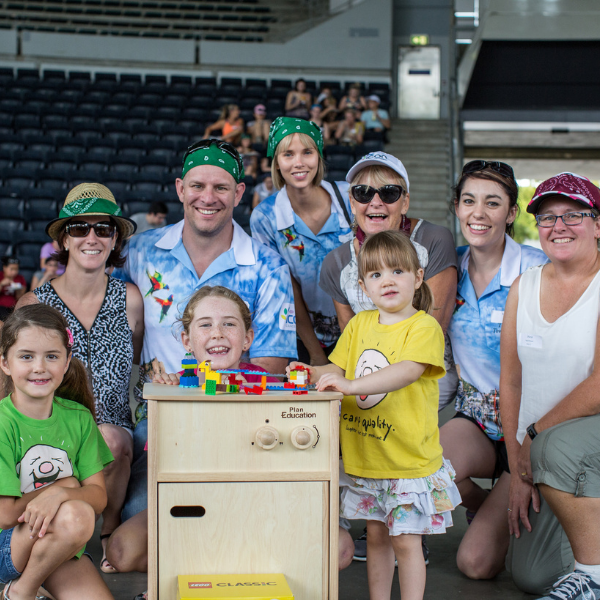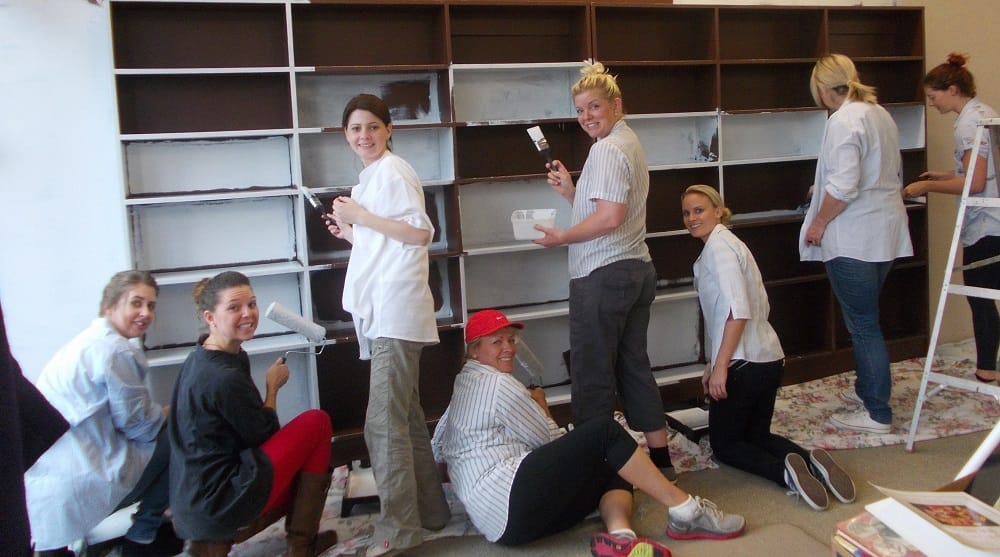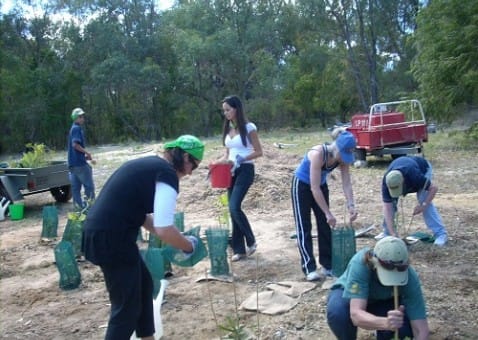In 2019, I published an article on tackling and implementing quick and easy strategies to address CSR (read it here). However, that was pre-COVID and this is now, so let’s take a look at CSR in 2021 and any relevant changes to the aforementioned strategies.
By now we have all heard the term CSR being thrown around the corporate world. But what does it actually mean? And how do you do it effectively in 2021?
Deloitte defines corporate social responsibility as a “business’s approach to sustainable development by delivering economic, social and environmental benefits.” So – it’s about the impact an organization makes on the world around them (which in turn needs to add value to the organization – a business can’t keep giving if it is not profitable after all). With everything that is happening in the world right now – it is more important than ever to ensure your business has an effective CSR strategy in place.
Obviously, this will mean different things to each business depending on multiple factors such as the industry you are in and resources you have available.
At the least, your business needs to look at everything it can be doing to reduce your carbon footprint, have a positive social impact in the most needed areas of the community you serve, and create business growth by benefiting the general community you serve and helping them to know and understand that – when buying from you – they are helping to make a difference in the world (even if in a small way).
While the effects of 2020 have been busy disrupting businesses globally, the silver lining has been the positive impact to CSR with many orgnisations attracting a more diverse workforce, increasing their local investments, and improving their carbon footprint due to the increase in remote working and reduction in business travel.
Most notably, the biggest change to CSR due to COVID is the deeper focus on social sustainability. Businesses are starting to understand that the most sustainable way of creating shareholder profit is by putting their employees, customers and communities before the immediate shareholders profit.
As we see markets making a calculated decisions about which businesses they choose to support, we have also seen a change in how employees choose an employer to invest their skills into. Research shows that millennials simply won’t work for an organization that doesn’t have strong social responsibility practices; they want to work with companies that truly care about making a positive change. See more on why CSR is crucial to retaining employees.
Let’s take a look at three strategies we discussed in 2019 and why they are still if not more important than ever:
01
Community Volunteering
There are plenty of worthy causes that are looking for volunteers to get involved. Giving your team a chance to get hands on by volunteering for an organization and give back is 100 times more rewarding than them reading about a donation in the company newsletter!
Companies can no longer just say they care about their community and environment, they must prove it and what better way than including employees in meaningful action like volunteer work.
Put it into action
Develop a program that partners with local charities or organizations that looks for volunteers to assist on projects and actively encourage your employees to get involved. This could be as simple as organizing a group to volunteer at a local soup kitchen or assisting with a local charity event. You might be surprised to know that virtual volunteering is in fact a growing trend widely adopted in Australia and New Zealand. Whether it be sewing pouches for injured animals or supporting the isolated through emergency virtual support there are many ways your business can help its community virtually.
Who does it well?
Deloitte employees are offered up to 48 hours paid time to volunteer for charitable organizations each year. They have a range of charity partners that they work closely with and also have an annual day of service called Impact Day, where more than 4,000 employees volunteer in over 400 locations across Australia, Papua New Guinea and the Solomon Islands to make an impact that matters in the local community.
Where can I do virtual volunteering?
United Nations Volunteers: This is a program that contributes to peace and development through volunteerism worldwide.
Catchafire: Catchafire strengthens the social good sector by matching professionals who want to donate their time to nonprofits who need their skills.
Smithsonian Digital Volunteer: Help make historical documents and biodiversity data more accessible.


02
Socially Responsible Business Projects
The 2019 Aflac Corporate Social Responsibility Survey found that 77% of consumers surveyed are “motivated to purchase from companies committed to making the world better”
Just being a profitable business is no longer a viable option. Consumers are becoming more aware of what the businesses they interact with are doing to address CSR. Thus it is important to actively engage in socially-responsible business projects that align with your company values and vision and get involved in the conversation – it’s ok to shout it out.
42% of people’s perception of a company is based on its corporate social responsibility activities – Forbes – Feb 2020
Since the tragedy death of African-American man George Floyd in police custody sparked protests across the US and around the globe in 2020 we have seen a shift in focus to supporting businesses that improve diversity and inclusion. It has also prompted many Australian companies to speak out against racism and inequality. Cotton On, Aesop, The Iconic, Camilla and Quay are just some of the Australian businesses that have posted messages of support for the Black Lives Matter movement.
Whether these projects focus on one area of CSR such as the environment or address multiple CSR initiatives, it is important to set clear goals and implement a structured plan that proves meaningful action.
Put it into action
These projects can come in all shapes and sizes. It could be something as simple as participating in a charity team building activity that gives back to the local community twice a year. The impact of this is two fold – your team gain a deeper bond from the experience together, and the experience helps to build a bigger conversation. Your company is recognized for the contribution both internally and externally, you can and should promote your efforts on social media and your website and encourage others to pay it forward.
You could look at partnering with environmental initiatives such as Earth Hour. Even if you only have the resources to start very small right now – it’s important to do something (and get involved in the conversation – promote what you are doing and make sure there is nothing happening in any part of the business that may be contradictory to this!)
Who does it well?
As much as Unilever have had their challenges over the years – they have learned their lesson and have now taken on a huge CSR undertaking that deserves a mention: Unilever has undertaken its own Socially-Responsible Business Project through its Sustainable Living Plan. Through this plan they have three big goals, improve the health and well-being for more than 1 billion people, reducing their environmental impact by half and enhance the livelihood for millions. Smaller projects are then run under each of these three big goals to ensure they are constantly improving their environmental footprint.
%
of people’s perception of a company is based on its corporate social responsibility activities – Forbes – Feb 2020
%
of consumers surveyed are “motivated to purchase from companies committed to making the world better”
03
Cause-Related Marketing
Cause-related marketing is a mutually beneficial collaboration between an organization and a non-profit organization designed to promote the former’s sales and the latter’s cause.
Put it into action:
As a profitable business you may consider creating incentives that see a portion of your product sales donated back to a nominated cause that ties in with your company vision or values. Consider something a little bigger such as developing products or offers that partner with your selected cause. For example, a percentage of profits from product sales could go back to a selected charity. The size of the project doesn’t matter, the important thing here is getting involved and giving back. The cause will in turn promote your brand/product, so really, it’s a win win!
It’s important to note here that not all corporate cause related marketing is received with praise and the public calling out brands for not taking meaningful action is a growing trend with easy access to social media being a platform for the consumer’s voice. Being authentic in your businesses marketing and transparent with CSR initiatives is key here. Consumers want to see that brands actually care and are willing to go the extra mile.
Who does it well?
Thank you is a social enterprise that operates like any profit business, however unlike other profit businesses, Thank you are committed to donating 100% of profits to their impact partners to fund sustainable development projects that help end global poverty.

%
of profits go to fund sustainable development projects that help end global poverty.
Prior to 2020, being socially responsible for many companies was a goal to be reached however today instead of CSR being the moral thing to do, it has evolved to be the expected thing to do. Governance sits with a company’s consumers, employees and shareholders. How they feel about your businesses authentic contribution has a fundamental influence on your brands bottom line and ultimately – success. Businesses need to be able to promote robust CSR strategies that attract customers, inspire trust and produce meaningful positive change.
No matter how you choose to address CSR the important thing is that you are doing something to have a positive impact on the world around you. Now we don’t expect you to go out and do everything on this list but we do encourage you to take this list, make it your own, be as creative as possible and as always – have fun with it!




Recent Comments